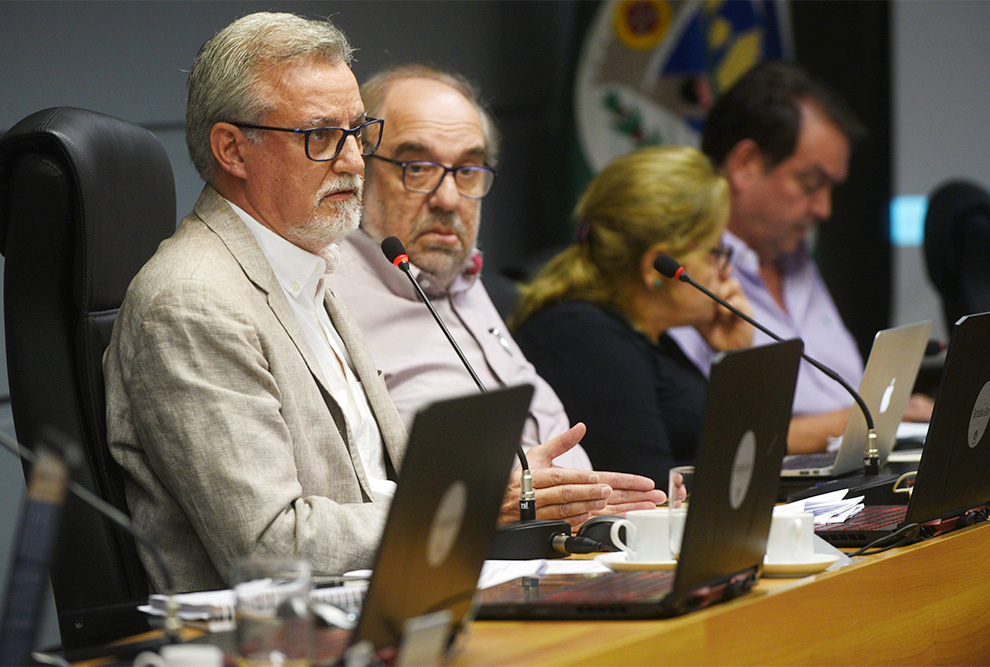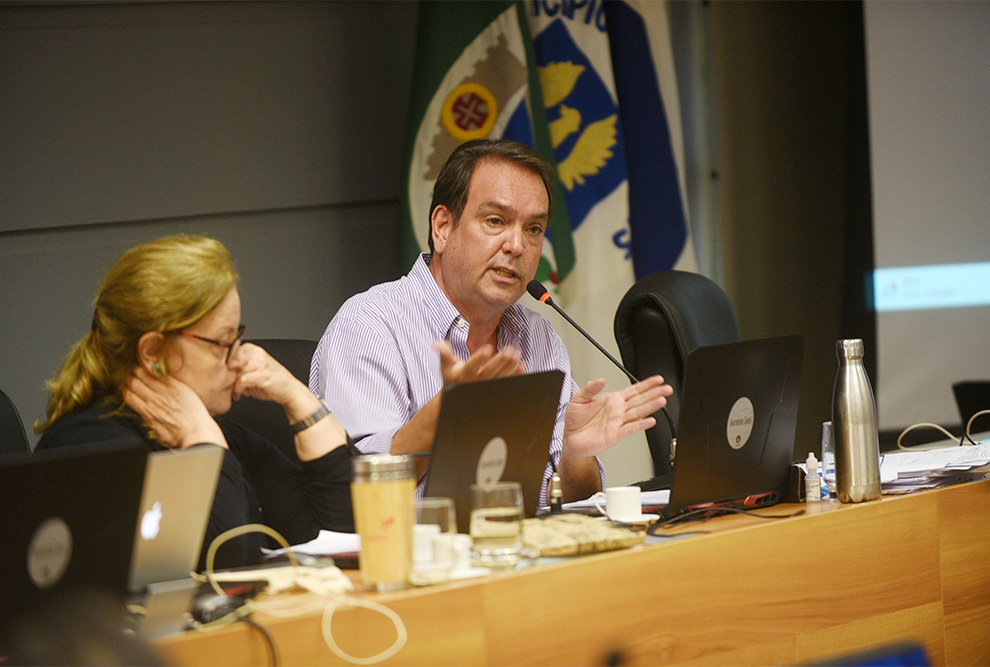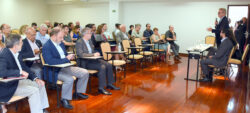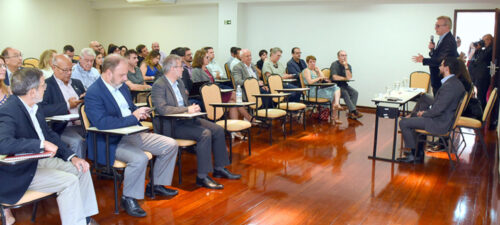
Unicamp closed the year 2022 with a surplus of BRL 560 million and a financial reserve of BRL 1,7 billion, according to data released this Tuesday (29), by the Economic Planning director of the Economic and Planning Advisory ( Aeplan), Thiago Baldini da Silva, at a meeting of the University Council (Consu).
The balance also showed a growth of about six percentage points in the rate of commitment of the University's total budget to payroll expenses, an indication of investments in valuing teaching and non-teaching staff.
The data presented by the director showed that the share of this type of expense grew from 68,99% in the 2021 fiscal year to 75,23% in 2022 and, according to him, was due to a salary recovery policy, career and new hires.
According to the balance sheet, the personnel expenses group grew 9,11% (R$ 206,2 million) and is due to a series of factors, such as bonuses and assignments, salary readjustment of 20,67% from the payroll of March and the increase of 20,67% — equivalent to R$ 12,4 million — in the resources for the career development program, destined to the hiring and progression of civil servants. The career development program set aside approximately R$81,6 million for progression and hiring.
The balance also informs that, in the record of the surplus of R$ 560 million, there is a balance of unexecuted budget appropriation of R$ 302,240 million.
These resources have already been distributed to the agencies, but have not yet been committed or executed. In addition, they cannot be used for any other purpose than the one for which they were approved. This amount ranges from funding resources to, mainly, works. “Faced with this, it is necessary to draw attention to the fact that we have a free resource of less than R$ 560 million”, emphasizes Baldini.
The document also highlights that the 2022 financial year was “totally atypical”, especially due to the effects caused by changes in ICMS rates. "After a period with strong growth in collection, the changes in rates strongly reduced the level of monthly collection in the second half", says the balance sheet.
According to information from Aeplan, the year 2023 has already started with a drop in the collection volume. According to the data, revenue losses in the first months of the year have already reached 3,2%.
Server allowances
The rector of Unicamp, professor Antonio José de Almeida Meirelles, commented, at the meeting, on the proposal to grant allowances for professors and non-teaching staff, a subject raised by councilors. Meirelles said that, in his assessment, this is not the most appropriate path. “Definitely, I think that the allowance is not the best solution”, stated the dean. “Unicamp made a better choice with regard to the treatment given to the budget. We should be proud of Aeplan and PRDU (Pro-Rectory of University Development)”, he added.
“In fact, by expanding the progression processes of professors, employees and researchers, we improve people's income permanently and based on merit criteria, associated with their performance in the functions they perform at our university”, said the dean. “It was this attitude of our University that justifies the much greater participation of our current payroll in the resources we receive, compared to the participation observed in other state universities”, he pondered. “Here, at Unicamp, we plan for the long term. One can occasionally criticize the form, but there is seriousness and continuity over time. And we cannot lose this, ”he warned.

Paepe progression
The Dean of University Development, Fernando Sarti, also criticized the proposal to grant the bonus. “The BRL 107 million that USP has set aside for granting the allowance represents 1,4% of the university's budget. We, at Unicamp, in 2022, committed 1% to the Paepe progression and now we have a second progression in which we will commit another 1%. We also used 1% with progression of professors, researchers and attorneys. And, only in these things, we are talking about 3%”, he argued.
“We have also committed our budget to the 170 hirings that are in progress, in addition to the partial salary replacement of pensions and civil servants. This meant that Unicamp's budget commitment to the payroll was 4 points ahead of USP and 7 points above Unesp”, he said. “And we achieved this due to a planned hiring and progression policy for our employees. This is indeed a professional valuation policy. I do not believe that the bonus is the best policy”, he summarized.
Sarti also recalled that Unicamp has made an effort to strengthen the student assistance and permanence policy, emphasizing that all these actions are part of a permanent policy of appreciation and not circumstantial measures of awards.
The pro-rector also commented on the proposal to establish a health plan for civil servants. “A health plan system like the one intended by USP could cost BRL 100 million a year. But our PDO (Budget Distribution Proposal) is absolutely balanced, and any extra funds to be disbursed would have to come out of the reserves”, he said.
“Would the resources go beyond the preventive reserve range — the one that guarantees three payrolls for possible periods of difficulty? Would it come out of the money set aside for Student Housing? Would we mess with the resources reserved for infrastructure works and investments, which are absolutely necessary? Could we stop the works of the FCA (Faculty of Applied Sciences), for example? Or would we take from the 300 million that have already been committed to the community in the PDO?”, asked Sarti.
“Let's not forget that those R$ 100 million would be transformed into permanent expenses. This money cannot come out of our PDO. It would have to leave the reserves, which, in turn, would run out in three years”, he warns.
The Dean of Graduate Studies, Rachel Meneguello, said she does not understand the reasons why the bonus policy is proposed. “The suggested bonus policy prioritizes a selective vision of rewards, instead of favoring a wage policy that benefits everyone”, she argues.
“This is a very serious mistake, because we are talking about an institution that must function as a collective body. I can't understand why employees are championing this idea. Why would a professor's award be worth six times the award given to an employee?”, asks the pro-rector.
Originally published on Unicamp website





